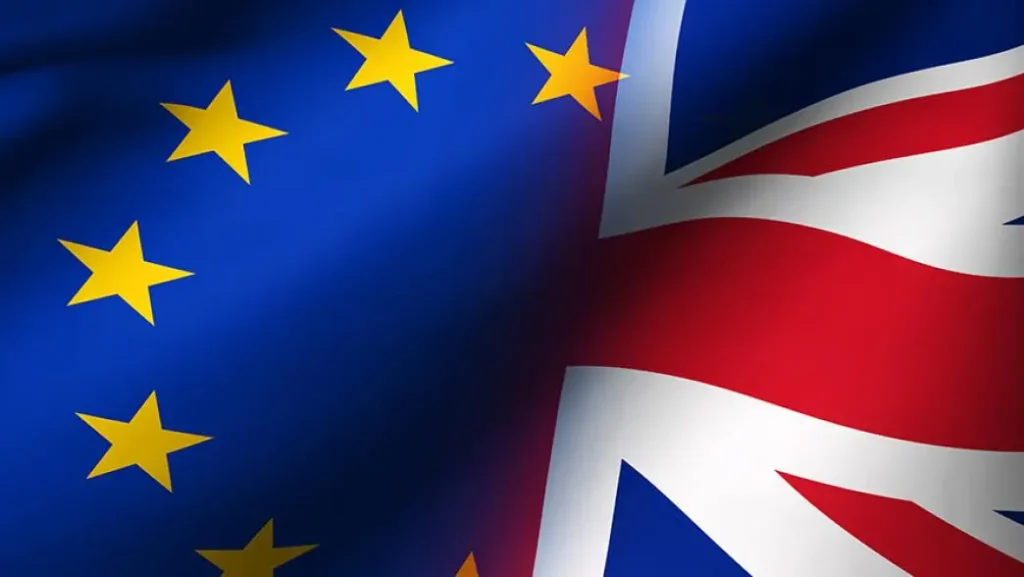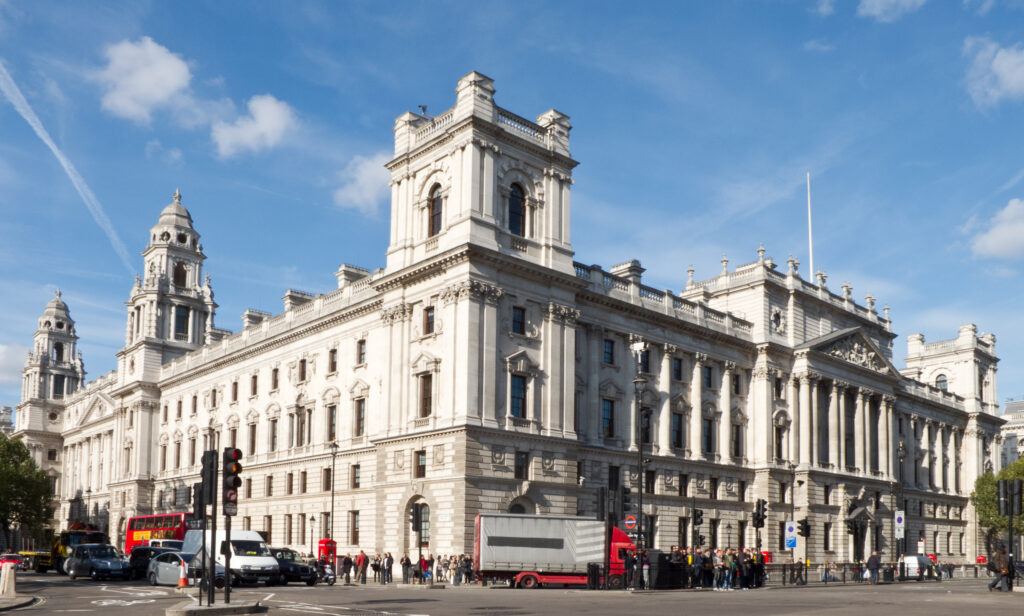
The third anniversary of Britain leaving the European Union caused of a spate of comment in the media a couple of weeks ago. For me it was a moment of great sadness, but I’m trying to move on – though I still wish political destruction on every politician that advocated it. But it is as good a moment as any to reflect on what has happened.
Opinion surveys show that people who voted to stay in still think they were right to do so. They think that the arguments made in favour of staying in have been borne out. Some of those who voted to leave feel they made the wrong choice, though. But mostly they don’t – they think that it is too early to tell, or that the opportunities have been mis-handled, or they are actually happy with they way things have unfolded. What unites most from both sides is a sense of gloom, and a lack of confidence in the government. Another thing that seems to unite both sides is a wish not to reopen the debate.
In terms of the economic statistics it is very hard to isolate any economic effect of the change, especially when the Covid pandemic, the war in Ukraine, and the escalation of energy prices is confuses the picture. There is abundant anecdotal evidence that smaller British businesses have given up exporting to the European Union, or indeed to anywhere. But the aggregate trade statistics don’t paint such a clear picture. Investment has fallen since the referendum result: Brexit is an obvious culprit but it would be hard to prove it.
But if we step away from the economic statistics, some things are becoming clearer about Brexit. It isn’t too early to look at how the reality is working out against the vision. There never was a single vision, though. I can see three main ones: the globalist case, the isolationist case and the socialist case. The globalist case is the closest to the one the government espouses. This regarded the EU as a barrier to trade and free enterprise, for two main reasons. Firstly it entailed a substantial regulatory burden, covering not just products, but the way they were made (for example labour and environmental standards), and this raised costs. And second the EU raised barriers to trade with countries outside the union, which included rapidly growing markets in Asia in particular. Britain could be a country of free-wheeling (or even buccaneering) enterprise. Sometimes this was called “Singapore on Thames” – apparently by people who had little idea what of Singapore actually is – though doubtless an authoritarian, technocratic one-party state with a taste for intrusion into private life actually appealed to many of them.
It is becoming clearer by the day that this idea is nonsense. British people draw comfort from regulation, and every attempt to lighten the burden is met by howls of protest. And it is far from clear that changing regulation will have an economically beneficial effect in more than a few limited areas. Indeed it seems to many that life outside the EU involves more red tape, not less – for imports and exports, travel and immigration. Meanwhile almost all trade deals so far struck with countries outside the EU are little different from what the country had inside. The exceptions are Australia and New Zealand, which will have little impact, and probably not much that is positive for British businesses (but maybe better for British consumers). Doing deals with China, India and America – the big prizes, has proved much harder than envisioned. Brexit supporters are now talking darkly of a conspiracy of Remain-supporting establishment types undermining progress – but a lot of the trouble comes from their on side (especially so far s reactions with India and China are concerned). But the logic never was very convincing. The kindest suggestion is that it is 20 years too late – perhaps there would have been more to play for when globalisation was going full throttle, rather than in its current gentle retreat.
But it is unlikely the most people who voted for Brexit shared this vision. They were drawn to an idea of Britain that was less integrated with the world around it, not more. This was focused on one idea in particular: “control over our borders” – limitations to immigration, rather than the free movement within the union. Supporters of this idea, like Nigel Farage of Ukip and the Brexit Party, did not point to any other countries as a model: Britain was one of a kind. Perhaps some people thought of Australia, a fiercely independent Anglo-Saxon heritage nation, with strict immigration rules. Suggesting an “Australian-style points system” to manage immigration received widespread approval, even though few people understood it or its implications. Another model might be Japan. Japan is an island that trades with its giant continental neighbour, China, but emphatically maintains its distance politically. It limits immigration, and, whisper it, prides itself on ethnic homogeneity (unlike modern Australia). It is also a highly successful country, that scores well on many indicators of quality of life. Economic growth in the last thirty years has been anaemic, but that only invites the question of what economic growth is for.
How is Britain doing under this isolationist vision? Free movement of people between Britain and Europe is now gone; many people from other European countries have left, and immigration from there is is now a trickle. All immigration is now subject to bureaucratic controls. If labour shortages have resulted, then this may simply be a first step towards giving local workers more opportunities. On this vision, things are going much better. There are three problems, though. One is an influx of refugees and others arriving in small boats on the Kent coast. I don’t think anybody had expected this to be so much harder to manage outside the union than within it; but the country can’t simply deport people back to France as it could before. This has turned into a major headache, especially for the authorities in Kent, and there are no convincing solutions that don’t involve doing a deal with the EU, which would involve accepting many more refugees legally, and undoing one of the perceived benefits of Brexit to isolationists. It is possible to take a bigger view of this: even allowing for this influx the country is taking fewer refugees than before. Unfortunately for the government, people supporting the isolationist view tend not to get such things in perspective. It is undoubtedly disorderly – though chicken feed to what Italy or Greece have to deal with.
A second issue is that, notwithstanding the hurdles, immigration has not reduced overall. Instead of people arriving from the EU, they are coming in from elsewhere. Fortunately for the government, the public seems much less stressed by this than by the boats. It is a relatively orderly flow of people after all, and by and large they are going into better-paid (or “high-skilled”) jobs that the economy needs, or paying extortionate student fees. But it does complicate the scorecard. The government can’t claim reduced immigration as a Brexit achievement. Indeed, every idea for reducing numbers, like cutting back on foreign students, looks like self-harm.
The third problem is that real wages are in steep decline, as inflation runs ahead of increases in pay. And the government is aiding and abetting this by putting maximum pressure on public sector pay. Brexit was supposed to increase wages by stopping low-skilled immigration. Perhaps supporters of the isolationist case, often retired, aren’t so bothered. But it is a long way from the case made for Brexit at the time of the referendum.
All this is indicative of a hole in the heart of the isolationist case. Australia has abundant natural resources it can exploit (or pillage, if you prefer – sustainability is not high on the Aussie agenda); Japan has a manufacturing industry that is still world-beating. There are world-beating bits of the British economy, but not enough. Nostalgia won’t bring back Britain’s once world-class manufacturing industry. Coal, oil and gas are in steep decline, if not dead. And some of the successful bits of the economy, like global financial services, benefit few, in the wrong parts the country, and have a distinctly dark side (the country was very popular with Russian oligarchs for a reason). The country has been running a current account deficit for over two decades, and, notwithstanding the depreciation of sterling, it isn’t getting any better. This turns out to be more sustainable than many economists thought – in the sense that it does not seem to be leading to the sort of financial instability that other deficit countries (like Argentina or Turkey) have suffered. But it does seem to be affecting the country’s terms of trade – though it is statistically hard to pin this down. According to one calculation the country’s real effective exchange rate is 83% of what it was in 2005 (i.e a fall of 17%). British people can buy less foreign goods and services with each hour’s earnings than used to be the case. There isn’t enough high-productivity, export-generating industry in the country. This problem has its roots in the relative industrial decline of the 1950s to 1970s, and the hollowing out of the the manufacturing economy under Margaret Thatcher. This largely pre-dates membership of the EU, and arguably was made worse by it. But somehow it was easier to cover the cracks within the Union.
The third case for Brexit I mentioned is the socialist one. This case has not yet been tested. According to this the EU is a capitalist-designed, anti-democratic system that prevents governments for taking their economies in a socialist direction. Not all (or even most) socialists followed held this view – hoping to reform the union from within – but its logic is solid enough. Holders of this view are fiercely defensive of national sovereignty – their aim being to take democratic control of the country, and drive through radical reform from there. Their economic reform ideas are not particularly popular (though perhaps not that unpopular either), but their ideas about national sovereignty are widely shared. Ironically, since the main advocates of Brexit were at the more aggressive end of capitalism, it is perhaps socialist policies that present the main national opportunities after Brexit. These will not fix the country’s export problem – export industries, other than mining or drilling perhaps, tend to need capitalist leadership succeed. But it may set in train a fairer distribution of income and wealth. I suspect that there is a hybrid of modern socialist and liberal ideas that could lead to a thriving society – and perhaps it is easier to pursue that path outside the EU, though I doubt it would make all that much difference. Other European citizens would be at least as interested in such ideas as the British are. Alas there are too few people anywhere who are pushing in that direction.
